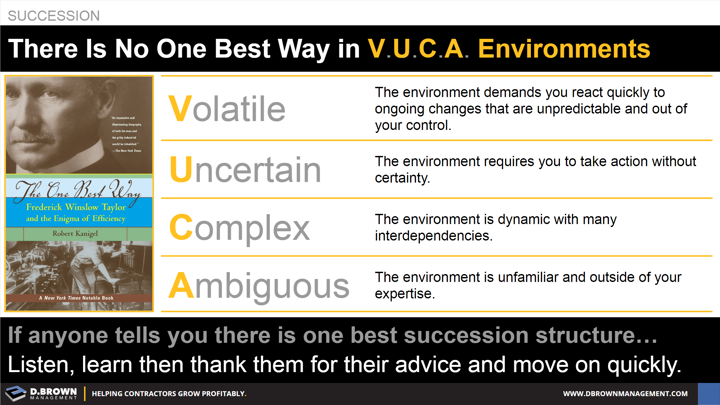W. Edwards Deming continued building on this with the PDCA cycle that has become a foundational part of the lean principles.
However, as systems become more complex (or V.U.C.A.), such as operating a company or succession planning, there is not a single “One Best Way” that will work in all situations.
As contractors that focus relentlessly on building efficiently, it is our tendency to want to quickly figure out that “One Best Way,” making us susceptible to advice that leans in that direction.
As you are selecting your third-party advisors, make sure to run quickly from those that insist that there is “One Best Way.”
Your focus needs to be on learning the multiple paths, understanding the pros and cons, then deciding on the path you are going to take up the mountain.

